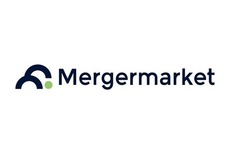
Korea's KIC more than doubles PE exposure in 2013
Korea Investment Corporation’s (KIC) private equity investments more than doubled in size to $2.6 billion over the course of 2013 as total assets increased 27% year-on-year to reach $72 billion.
The sovereign wealth fund has achieved a 4.02% annualized return since its inception in 2006 but private equity - for which the investment program began in 2009 - is the worst-performing of the alternative asset classes. It has returned 6.37% compared to 7.65% for hedge funds and 7.73% for real estate, according to KIC's 2013 annual report.
While KIC gives performance figures for its equities and fixed income investments for 2013, on a three-year annualized basis and a five-year annualized basis, as well as since inception, it offers less detail on alternatives. Information on 2013 and three-year performance for hedge funds, private equity and real estate was included in an earlier draft of the report seen by Dow Jones Newswires. Private equity generated 1.1% on a three-year basis and 8.6% for 2013 alone, trailing hedge funds and real estate.
The revised 2013 report is consistent with that of the previous year, which also only gave alternatives performance since inception.
The sovereign wealth fund's alternatives allocation at the end of 2013 was 8%, with 48.4% in equities, 34.3% in fixed income, 1.6% in special investments and 7.6% in other assets. Within alternatives, KIC has allocated 3.7% to private equity, 2.5% to hedge funds, 1.5% to real estate and 0.3% to cash and other assets.
Standing at $5.7 billion, the alternatives portfolio has increased substantially from $3.46 billion in 2012. At the end of 2012, KIC had $1.08 billion in private equity, $1.33 billion in hedge funds, $911 million in real estate, and $131 million in cash and other assets.
Heung-Sik Choo, who took over as CIO of KIC earlier this year, said in April that KIC would double its investments in alternative assets over the next 10 years, taking the allocation to around 20%. "We'll have to embrace the lower return expectation from traditional assets and that will continue for a considerable period," he told Bloomberg. "Considering such an environment, expanding into alternatives is one of the most efficient way to protect yield in the mid-to-longer term."
Set up in 2005, KIC initially bought bonds before adding equities to its portfolio in 2007. Two years later, it expanded to distressed debt, real estate and private equity. Choo said that the alternative asset management department had about 20 members and planned to add more.
KIC follows a number of other state funds in increasing its exposure to alternatives. Singapore's Temasek Holdings has nearly doubled its holdings of unlisted assets to 27% of its portfolio over the past eight years, while Australia's Future Fund increased its proportion of private equity and real estate assets to 13% from 6.3% in the three years through March 2013.
Latest News
Asian GPs slow implementation of ESG policies - survey
Asia-based private equity firms are assigning more dedicated resources to environment, social, and governance (ESG) programmes, but policy changes have slowed in the past 12 months, in part due to concerns raised internally and by LPs, according to a...
Singapore fintech start-up LXA gets $10m seed round
New Enterprise Associates (NEA) has led a USD 10m seed round for Singapore’s LXA, a financial technology start-up launched by a former Asia senior executive at The Blackstone Group.
India's InCred announces $60m round, claims unicorn status
Indian non-bank lender InCred Financial Services said it has received INR 5bn (USD 60m) at a valuation of at least USD 1bn from unnamed investors including “a global private equity fund.”
Insight leads $50m round for Australia's Roller
Insight Partners has led a USD 50m round for Australia’s Roller, a venue management software provider specializing in family fun parks.








